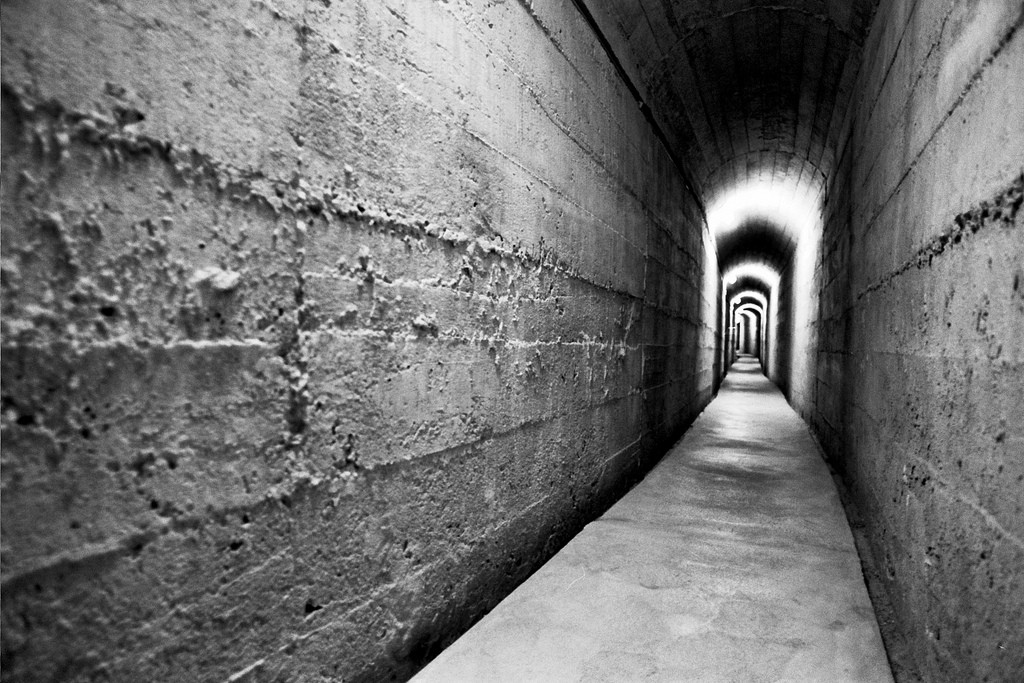Prepping For The Apocalypse When You Have a Lot of Money
Prepping for the apocalypse in Silicon Valley sounds expensive.

If I allow my mind to wander far enough into the future and imagine some sort of global chaos in which all of the systems we depend on every day have collapsed, I take stock of my life and wonder whether or not I’ll be adequately prepared to weather the apocalypse.
The answer is no. I don’t have a bug out bag at the ready, full of canned food and those silver blankets they hand out after marathons and weaponry. I don’t spend my discretionary income on MREs and backup generators and things that will ready me for the end times. I have no backup plan, period. Shows like “Doomsday Preppers,” in which people fill vast underground bunkers with canned food, freeze-dried food and Silver Eagle coins, all show people predicting a future in which they will have to shelter in place to defend themselves and their families against whatever the world looks like once everything collapses — like The Walking Dead, but without the zombies. None of this sounds cheap. But the measures that the one percent are taking in order to prep for the inevitable(???) end are…something else.
Doomsday Prep for the Super-Rich
Silicon Valley billionaires are terrified of the apocalypse, partially because they fear the backlash that may meet. To prepare for what may come, these men are going to very extreme and expensive limits to ready themselves for their version of the end times, should they come.
Yishan Wong, an early Facebook employee, was the C.E.O. of Reddit from 2012 to 2014. He, too, had eye surgery for survival purposes, eliminating his dependence, as he put it, “on a nonsustainable external aid for perfect vision.” In an e-mail, Wong told me, “Most people just assume improbable events don’t happen, but technical people tend to view risk very mathematically.” He continued, “The tech preppers do not necessarily think a collapse is likely. They consider it a remote event, but one with a very severe downside, so, given how much money they have, spending a fraction of their net worth to hedge against this . . . is a logical thing to do.”
Other preparations include erecting vacation homes in New Zealand as “apocalypse insurance” and the Survival Condo Project, which is an insane fifteen-story luxury apartment complex built in an underground missile silo, with twelve full-floor apartments going for three million a piece. All of them, except for one, are sold.
We stopped in a condo. Nine-foot ceilings, Wolf range, gas fireplace. “This guy wanted to have a fireplace from his home state” — Connecticut — “so he shipped me the granite,” Hall said. Another owner, with a home in Bermuda, ordered the walls of his bunker-condo painted in island pastels — orange, green, yellow — but, in close quarters, he found it oppressive. His decorator had to come fix it.
That night, I slept in a guest room appointed with a wet bar and handsome wood cabinets, but no video windows. It was eerily silent, and felt like sleeping in a well-furnished submarine.
I am fascinated by the lengths the extremely-wealthy are taking to avoid the end times, and more so by their motivation:
The fears vary, but many worry that, as artificial intelligence takes away a growing share of jobs, there will be a backlash against Silicon Valley, America’s second-highest concentration of wealth. (Southwestern Connecticut is first.) “I’ve heard this theme from a bunch of people,” Hoffman[founder of LinkedIn] said. “Is the country going to turn against the wealthy? Is it going to turn against technological innovation? Is it going to turn into civil disorder?”
Not all is lost, however. Max Levchin, a founder of PayPal, raised a very good point: instead of covering your own ass with the bunkers and the compounds that you can slip away to when the little guy rears their ugly head and comes for yours, why don’t you do something with all that money to help?
“I typically ask people, ‘So you’re worried about the pitchforks. How much money have you donated to your local homeless shelter?’ This connects the most, in my mind, to the realities of the income gap. All the other forms of fear that people bring up are artificial.”
Do you prep? Are you ready? What will you do if the apocalypse comes sooner rather than later? Is there anything, or should we just accept our fates as is, and carry on?
Support The Billfold
The Billfold continues to exist thanks to support from our readers. Help us continue to do our work by making a monthly pledge on Patreon or a one-time-only contribution through PayPal.
Comments